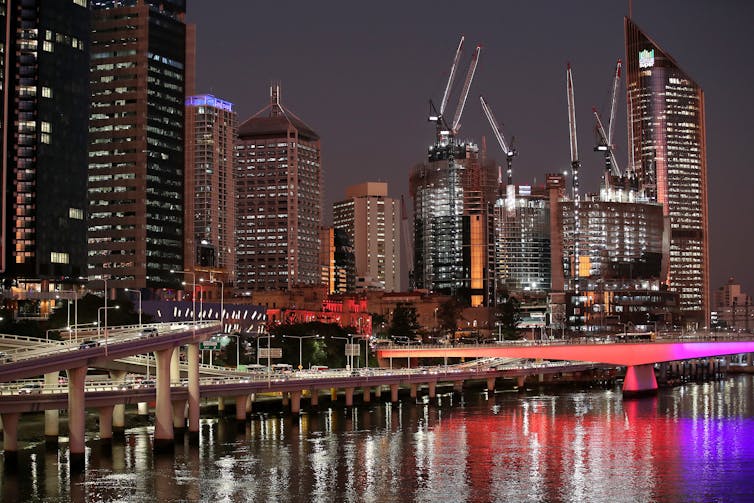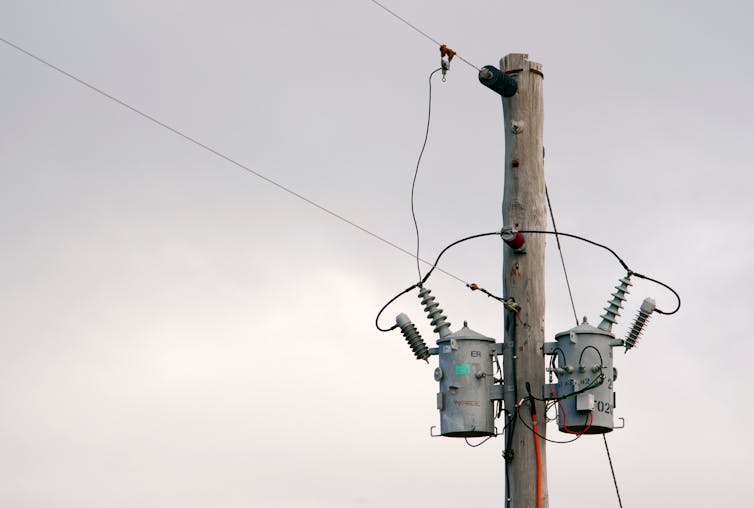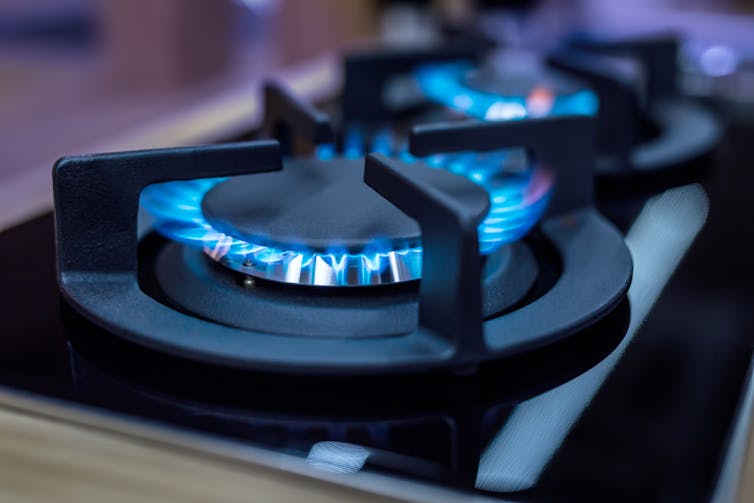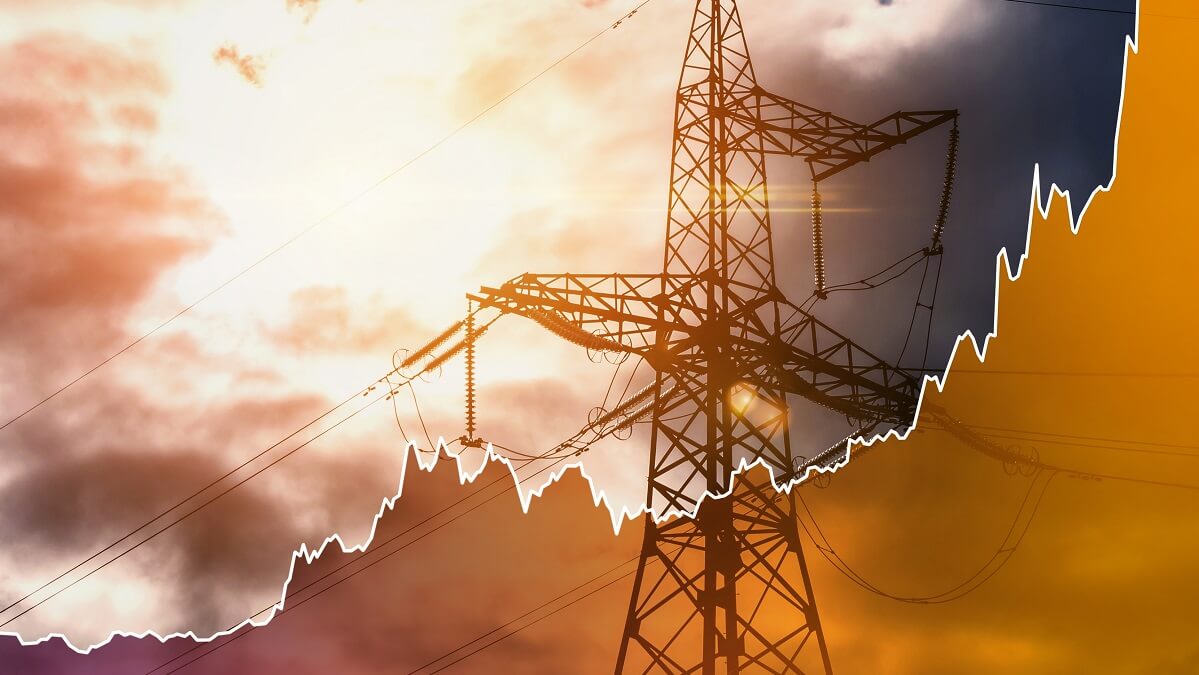Ariel Liebman, Monash University
Households and businesses are set for more hip-pocket pain after regulators on Wednesday released draft details of electricity price rises in four Australian states.
The Australian Energy Regulator revealed that residential customers on standard plans should brace for price increases of up to 24 per cent in the next financial year. The price rises apply to households in Queensland, New South Wales and South Australia.
The Victorian regulator also flagged an electricity price hike of up to 30 per cent in that state.
It’s another blow in an already difficult financial situation for many, as interest rates continue to rise and inflation soars. Consumers are justified in asking: Why is this happening? And is there an end in sight?

Jono Searle/AAP
The basics explained
The regulator released a draft of what’s known as the ‘default market offer’. It’s basically the maximum amount energy retailers can charge customers on default energy plans.
So what’s a default energy plan? It’s the standard plan you’re on if you didn’t negotiate a special deal with your energy retailer, or if a deal you were on has expired.
According to the ABC, around one million electricity customers in the four states mentioned above are on default market offers.
Many consumers are on default plans because they don’t have the time or inclination to engage with their electricity retailer to negotiate a better deal. Others, quite understandably, find the whole process too confusing to navigate.
That’s why default market offers were introduced. Both the federal and Victorian policies were developed after reviews found competition in retail electricity markets was not leading to lower prices for households or small businesses.
The Victorian default offer began in 2019. The federal measure was applied in 2020.
The regulators release a draft determination ahead of a final decision, expected soon.
So why the price hike?
Your electricity bill comprises several different charges. The biggest ones are:
– wholesale energy costs: the price generators such as coal and gas plants charge your retailer for the electricity delivered to you
– network costs: the price charged by companies that own the ‘poles and wires’ – transmission lines, transformers, electricity poles and the like – needed to get the electricity to your home
– retail costs: the total amount needed by an electricity retailer to operate – such as issuing bills, providing customer service, marketing themselves – as well as to make a reasonable profit.
Regulators calculate the default market offer by considering each of these price components.

Shutterstock
The increased default market offers are mostly due to increases in wholesale prices.
Wholesale prices increased in recent months almost entirely as a result of sanctions imposed on Russia following its invasion of Ukraine. It led to a global shortage of natural gas. This was exacerbated when Russia withdrew gas supplies from the European market.
Even though the energy shocks were happening half a world away from Australia, it affected domestic gas prices here. Why? Because most of Australia’s east coast gas is exported, which means its price is largely determined by the global price.
This could have been avoided if the federal government has a mechanism to keep some of that gas for the domestic market – in other words, if it had a so-called ‘gas reservation policy’. But the current and previous governments have refused to implement this.
The federal regulator said the planned retirement of AGL’s ageing Liddell coal-fired power station in the NSW Hunter Valley contributed to its decision. Liddell is one of the biggest coal-fired generators in the national electricity market, and the closure is likely to lead to a short-term tightening of supplies.
Another factor affecting the regulators’ decision relates to a strategy electricity retailers use to protect themselves against volatile wholesale prices in future. The strategy, known as hedge contracts, fixes the wholesale price retailers pay for electricity over a long period – up to several years.
The price set in hedge contracts struck over the past year or so was influenced by Australia’s domestic gas crisis in 2022, which caused massive rises in wholesale electricity prices.

Shutterstock
What to expect down the track
Australian Energy Regulator chair Clare Savage on Wednesday said the price increases could have been much higher, if not for intervention by the Albanese government late last year to cap prices in Australia’s gas and coal markets.
Climate change and energy minister Chris Bowen says those price caps have saved households between $268 and $530.
The caps are likely to cause further falls in the default market offer in coming years. But the policy appears to be only an interim measure until the global supply shortage eases.
In the longer term, renewable energy offers a ray of hope.
The federal government has set a target of 82 per cent renewable electricity by 2030. But of course, a few significant complementary measures – such as more investment in transmission networks and energy storage – are needed.
This investment would support the transition to a zero-emissions electricity sector. Importantly, it would also insulate long-suffering consumers from volatile fossil fuel prices.
Ariel Liebman, Ariel Liebman Director, Monash Energy Institute and Professor of Sustainable Energy Systems, Faculty of Information Technology, Monash University
This article is republished from The Conversation under a Creative Commons licence. Read the original article.
Are you worried about electricity prices going up? Are you using less power? Let us know in the comments section below.


The fact that both major parties have refused to implement a domestic gas reservation policy is yet another cost to the Australian people resulting from the lobbying, payola and bribery of both political parties by the minerals and gas lobbies. If WA can stand up to them why can’t the East Coast?
We are told that stopping this political payola and introducing publicly paid election campaigns would cost tax-payers $millions but in fact this is an example of where not doing so is costing us $billions.
The sovereign risk issue is a total red herring. There is no more stable or safe location in the world to invest in harvesting gas and minerals than Australia and the mostly foreign companies that do so repatriate many $billions annually, mostly on transfer pricing without paying local taxes. The gas and minerals belong to the people of Australia and our governments are failing us in not insisting on a better deal from their party paymasters. Let’s see a table of the profits each of these companies make and the amount of company tax they pay in Australia! The government should insist that they pay local company tax on the full world value of the minerals and gas they harvest.
I have a question:- Why is South Australia’s energy costs increasing by so a large amount ??
According to the official figures, South Australia derives it’s energy from 70% renewables, !!
Therefore that 30% differential is the source of the 25% increase in the cost to the consumer (the same increase as the Eastern States who derive there Electricity from Coal [majority] & Gas.)
Gordon, this is clear proof that this has nothing to do with cost, it’s all about monopoly opportunism.
I’m not a gas user but we are told that it’s cheaper to move from gas to electricity. But producing electricity from gas is only 50% efficient so it uses twice as much gas to produce the same amount of heat from gas powered electricity. How can electricity be cheaper? If you try to make sense from any government controlled monopoly you will go nuts.
Read “Trillion Dollar Baby” and see why Norway doesn’t have these problems and, in fact, has a trillion dollar sovereign fund because it stood up to and negotiated with the oil and gas companies. This is something that our federal politicians have yet to learn how to do.
There is a simple reason: Incompetent amateur Government.
No leadership, No vision, and no brain BUT THIS IS A socialist GOVERNMENT that spends many billions on aboriginal people, The Voice…and buys used submarines!!!!!!!!!!!!!!!! Instead of caring for the average hard done by Aussies!
Stupid people always vote Labor…….and this is what they get.
It is simple, State Government have increased charges on fossil fuel generators to the point of them being almost non-competitive. They have increased charges on Distributors to run power lines, They are subsidising all types of renewables claiming them to be free energy. They are no factoring in the costs to establish, maintain and dispose of wind turbines, batteries and solar panels, together with environmental impacts The questions that should be asked is who is paying for that to happen, and I guarantee there will be no subsidy for replacement solar panels or batteries for the homeowners whose panels and batteries reach the end of their useful life. Who is going to be responsible for their disposal and the cost thereof.
Government are forcing banks not to invest in any sort of clean techniques for any fossil fuel usage.
The solution to the cost spiral is the there should be a reserve supply of gas for the domestic market, and the energy suppliers should supply that gas at no higher than the lowest long term export price.
Fossil Fuel generators should only be closed after a base load supply can be guaranteed from other sources.
There is no one source of energy that should be used but an ever changing mix of all types of generator.
Governments should not be forcing change in the industry by imposing penalties, based on ideology, but by encouraging innovation to achieve the best outcomes..
Whether that be Clean Coal, coal emissions sequention, Nuclear, Hydro, Pumped Hydro, Gas, super heated water, thermal,Hydrogen, Solar, Wind Turbines, Wave, Tidal, or some other including new storage technologies such as salt-ion, nuclear diamond, solid state or many others currently being developed. Also we need to look at other alternates such as small generation units rather than large projects, the efficiency and design of turbines. We must innovate to get the best for us not what someone else somewhere has found to be best for them.
If we do not act to reduce energy costs, all our exports and local products will be uncompetitive, produce high unemployment, much lower living standards, and Governments with no funds for social services, or to run essential services,